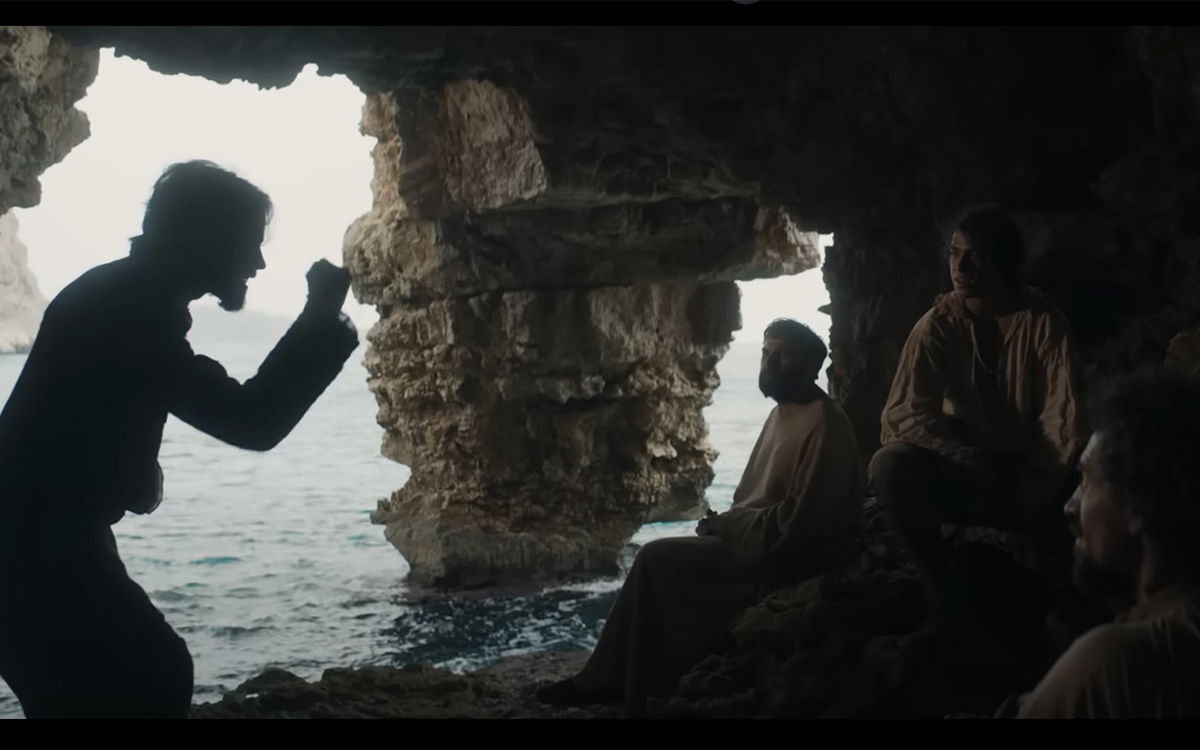Benitachell’s Cova dels Arcs and Moraig cove were transformed into a film set. Credit: Frame from the film
Alejandro Amenábar’s latest film, El cautivo, premiered in cinemas on Thursday September 12. The production is based on a chapter in the life of writer Miguel de Cervantes, who in 1575 was captured by corsairs and taken to Algiers, from where he repeatedly attempted to escape and return to Spain.
The director seeks to portray the moments that shaped Cervantes’ talent as a storyteller, a skill that later flourished in his masterpiece Don Quixote de la Mancha, as a way of “freeing himself” from captivity.
Several locations in Alicante province were chosen to bring the story to life. Filming began in April 2024 at Santa Pola’s fortress castle and continued at Alicante’s Castillo de Santa Bárbara, the Ciudad de la Luz film studios, as well as in the palace of Anna (València), Buñol Castle, Bocairent and Seville, where production wrapped up in mid-June last year.
Among the settings used was a striking landscape in Marina Alta. In May 2024, Benitachell Cova dels Arcs and Moraig cove were transformed into a film set, requiring the area to be closed to the public for two days while the technical and human infrastructure was put in place.
The trailer for El cautivo shows a short glimpse of the Benitachell location, which Amenábar used to recreate a natural setting reminiscent of 16th-century Algiers.
Julio Peña plays the young Cervantes, joined by an impressive cast including Alessandro Borghi, Fernando Tejero, Miguel Rellán, José Manuel Poga, Luis Callejo, Roberto Álamo, Albert Salazar, César Sarachu and Luna Berroa.
More about El cautivo
The film is a Spanish-Italian co-production led by MOD Producciones and Himenóptero (behind The Others, The Sea Inside, Agora and While at War), together with Misent Producciones and Propaganda Italia. It also features the involvement of Netflix, RTVE and RAI Cinema, with support from Spain’s Ministry of Culture (ICAA), the Generalitat Valenciana and Eurimages.
Executive production is handled by Fernando Bovaira, long-time producer of Amenábar’s films as well as acclaimed television series such as Los Farad, La Fortuna, Crematorio and El día de mañana.
